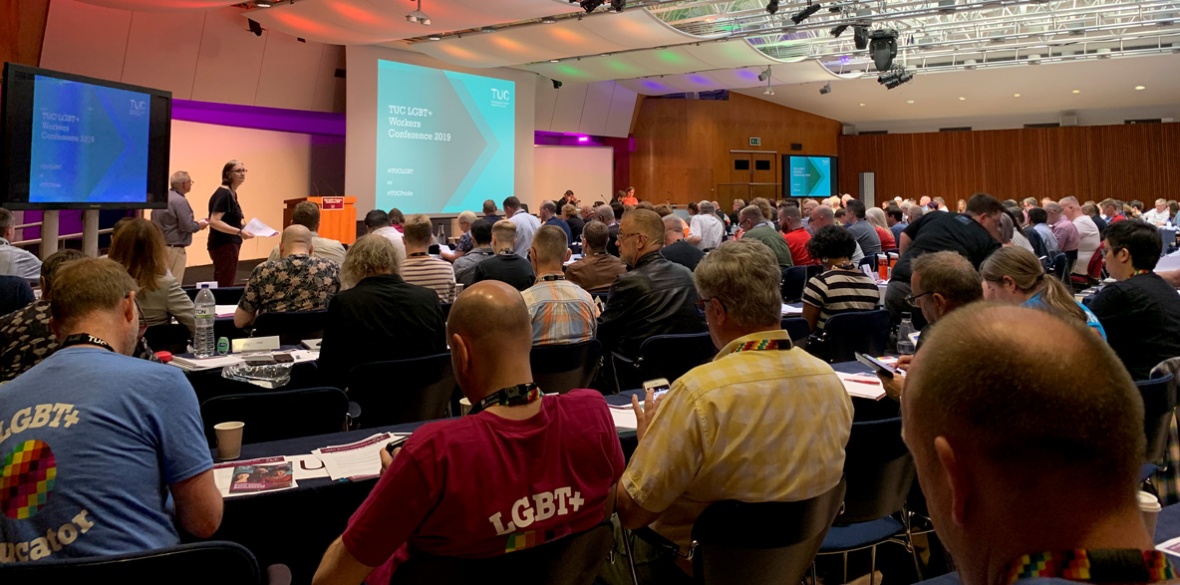This is the last article you can read this month
You can read more article this month
You can read more articles this month
Sorry your limit is up for this month
Reset on:
Please help support the Morning Star by subscribing here
by Ceren Sagir
at Congress House
LGBT-inclusive sexual harassment awareness training in the workplace must become compulsory, trade unionists demanded yesterday.
Delegates at the first day of TUC’s LGBT conference called for sexual harassment to be treated as a serious health and safety issue.
TUC general secretary Frances O’Grady said in her opening remarks: “Enough is enough. TUC is campaigning for a legal duty for employers to prevent harassment at work.
“No shop assistant, no barrister, no cabinet member should put up with this crap anymore.”
TUC LGBT committee member Taranjit Chana warned that LGBT people are known to experience higher levels of sexual harassment at work but face difficulties in reporting incidents.
The TUC’s “one of a kind” report found that seven out of 10 LGBT people experience at least one type of sexual harassment at work.
And one in eight LGBT women (12 per cent) reported being seriously sexually assaulted or raped at work.
Ms Chana said that sexual harassment can take many forms, from inappropriate remarks and photography to unwanted touching, hugging and kissing, and sexual assault.
“LGBT women often hear remarks about being ‘turned’ straight or needing a man,” she said.
General union GMB’s Tom Granger warned that black and minority ethnic and disabled women are affected in a disproportionate way as a result of discrimination and stereotypes.
“We should have the right to work free from sexual harassment,” Mr Granger said, and called for the introduction of a new legal duty on employers to prevent it from happening.
Transport union RMT’s Alex Grant said: “Effects of sexual harassment on victims can be profound. These are serious problems which employers have the responsibility to address.”
Mr Grant urged for training to bring the effects of sexual harassment to light and give employers the incentive to manage the issue.
National Education Union equalities chairwoman Katie Reynolds gave examples of homophobia by staff and students in schools. These ranged from the use of the phrase “that’s so gay” and LGBT staff being asked how they have sex, to LGBT faculty being told that they are not allowed to supervise PE changing rooms.
She said: “More often educators don’t feel safe about being out in the workplace because of fear of repercussions.
“Nobody at all should feel ashamed about who they are. What kind of example do we want to be setting for young people?”
Ms Reynolds called for a LGBT-inclusive curriculum.
LGBT workers face additional barriers in reporting sexual harassment and 35 per cent feel unable to be out at work due to fear of discrimination, the TUC reported.










